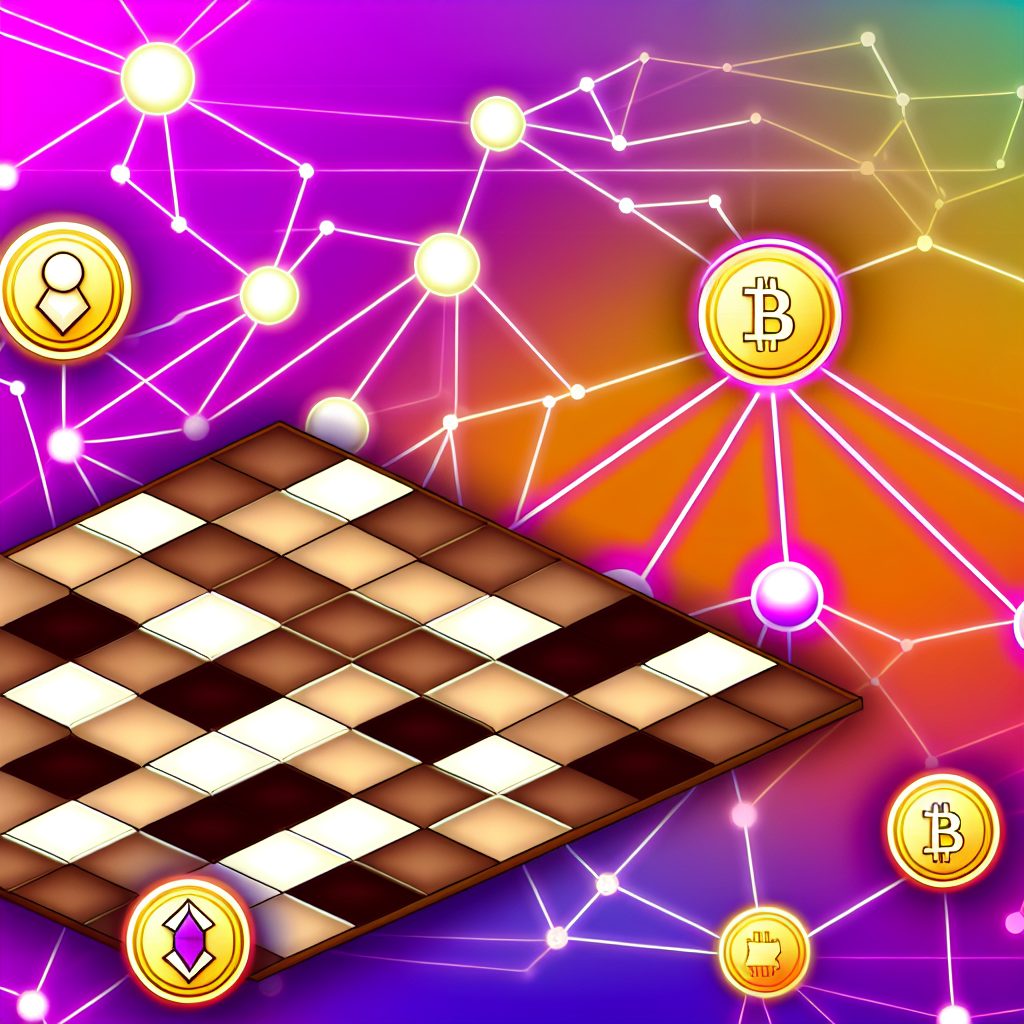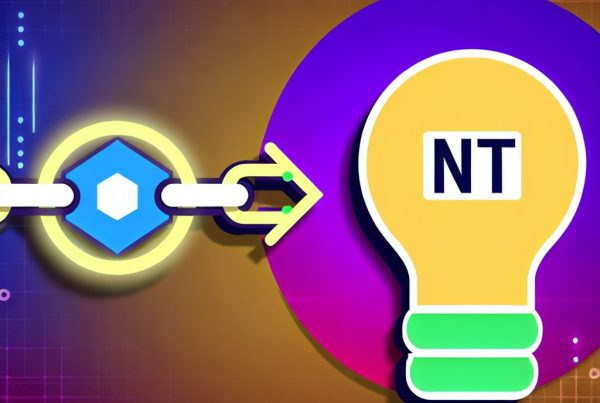The Role of Game Theory in Crypto Networks
Game theory, a mathematical framework for analyzing strategic interactions among rational decision-makers, plays a crucial role in the functioning and evolution of cryptocurrency networks. As the cryptocurrency industry continues to grow, understanding the principles of game theory can provide valuable insights into the behavior of participants within these decentralized systems. This article delves into the significance of game theory in crypto networks, exploring its applications, implications, and real-world examples.
Understanding Game Theory
Game theory is the study of mathematical models of conflict and cooperation between intelligent rational decision-makers. It provides a framework for predicting the outcomes of strategic interactions where the choices of multiple agents affect each other. In the context of cryptocurrency, game theory helps to analyze how participants (miners, validators, users) make decisions that impact the network’s security, efficiency, and overall functionality.
Key Concepts in Game Theory
Several key concepts in game theory are particularly relevant to cryptocurrency networks:
- Players: The individuals or entities involved in the game, such as miners, developers, and users.
- Strategies: The possible actions that players can take, which can include mining, staking, or trading.
- Payoffs: The outcomes resulting from the players’ strategies, often represented in terms of utility or profit.
- Equilibrium: A state where no player can benefit by changing their strategy while others keep theirs unchanged, often referred to as Nash Equilibrium.
The Importance of Game Theory in Cryptocurrency
Game theory is essential in cryptocurrency for several reasons:
- Security: Game theory helps to analyze the incentives for miners and validators to act honestly, ensuring the integrity of the blockchain.
- Incentive Structures: Understanding how different incentive mechanisms can influence behavior is crucial for designing effective protocols.
- Network Dynamics: Game theory provides insights into how participants interact, which can affect network performance and scalability.
Applications of Game Theory in Crypto Networks
Game theory finds various applications in cryptocurrency networks, influencing their design and operation:
1. Consensus Mechanisms
Consensus mechanisms are fundamental to blockchain technology, ensuring that all participants agree on the state of the network. Game theory plays a vital role in designing these mechanisms, particularly in proof-of-work (PoW) and proof-of-stake (PoS) systems.

In PoW systems like Bitcoin, miners compete to solve complex mathematical problems. Game theory helps to analyze the incentives for miners to act honestly versus the temptation to engage in malicious activities, such as double-spending. The Nash Equilibrium in this context suggests that as long as the majority of miners act honestly, the network remains secure.
In PoS systems, validators are chosen based on the number of coins they hold and are willing to “stake.” Game theory helps to design mechanisms that encourage validators to act in the network’s best interest, as their financial stake is at risk if they behave maliciously.
2. Tokenomics
Tokenomics refers to the economic model behind a cryptocurrency, including its supply, distribution, and incentives. Game theory is instrumental in designing tokenomics that align the interests of various stakeholders.
For instance, in decentralized finance (DeFi) protocols, liquidity providers are incentivized to supply liquidity through yield farming. Game theory can help predict how changes in rewards or penalties will affect user behavior, ensuring that the protocol remains attractive and sustainable.
3. Governance Models
Decentralized governance models rely on the participation of token holders to make decisions about the future of the network. Game theory provides insights into how different governance structures can influence participation and decision-making.
For example, in a token-based voting system, game theory can help analyze the potential for collusion among large token holders, which could undermine the democratic process. Understanding these dynamics is crucial for designing governance models that promote fairness and inclusivity.
Real-World Applications of Game Theory in Crypto
Several cryptocurrency projects have successfully implemented game theory principles to enhance their networks:
1. Bitcoin
Bitcoin’s proof-of-work consensus mechanism is a prime example of game theory in action. Miners are incentivized to act honestly due to the potential rewards for successfully mining blocks and the risk of losing their investment in mining hardware. The equilibrium achieved through this competitive environment ensures the security and integrity of the Bitcoin network.
2. Ethereum 2.0
Ethereum’s transition to a proof-of-stake model in Ethereum 2.0 incorporates game theory to encourage validators to act in the network’s best interest. By staking their ETH, validators have a financial incentive to maintain the network’s security and avoid malicious behavior, as they risk losing their staked assets.
3. DeFi Protocols
Decentralized finance platforms like Uniswap and Aave utilize game theory to design incentive structures that attract liquidity providers and borrowers. By analyzing user behavior through game-theoretic models, these platforms can adjust rewards and fees to optimize participation and ensure long-term sustainability.
Challenges and Limitations of Game Theory in Crypto
While game theory offers valuable insights, it also has limitations when applied to cryptocurrency networks:
- Assumptions of Rationality: Game theory often assumes that players are rational and will always act in their best interest. However, human behavior can be unpredictable, leading to outcomes that deviate from theoretical predictions.
- Complexity of Interactions: The interactions within crypto networks can be highly complex, making it challenging to model all possible strategies and outcomes accurately.
- Dynamic Environments: The rapidly evolving nature of the cryptocurrency industry means that game-theoretic models may quickly become outdated, requiring constant adaptation and refinement.
Future Trends in Game Theory and Crypto
The intersection of game theory and cryptocurrency is likely to evolve as the industry matures. Some potential future trends include:
- Enhanced Security Protocols: As cyber threats become more sophisticated, game theory will play a crucial role in developing advanced security mechanisms that deter malicious actors.
- Improved Governance Models: The ongoing exploration of decentralized governance will benefit from game-theoretic insights, leading to more effective and equitable decision-making processes.
- Integration with AI: The combination of game theory and artificial intelligence could lead to more adaptive and responsive crypto networks, capable of adjusting to changing conditions in real-time.
FAQs
What is game theory?
Game theory is a mathematical framework used to analyze strategic interactions among rational decision-makers, focusing on how their choices affect one another.
How does game theory apply to cryptocurrency?
Game theory applies to cryptocurrency by analyzing the incentives and behaviors of participants within the network, influencing consensus mechanisms, tokenomics, and governance models.
Why is game theory important for blockchain security?
Game theory helps to design incentive structures that encourage honest behavior among miners and validators, ensuring the security and integrity of the blockchain.
Can game theory predict user behavior in crypto networks?
While game theory can provide insights into potential user behavior, it cannot predict actions with absolute certainty due to the complexity and unpredictability of human decision-making.
Conclusion
Game theory is a fundamental aspect of cryptocurrency networks, influencing their design, security, and governance. By understanding the strategic interactions among participants, developers can create more robust and efficient systems that align the interests of all stakeholders. As the cryptocurrency industry continues to evolve, the principles of game theory will remain essential in addressing emerging challenges and opportunities.
For the latest updates on cryptocurrency news and price tracking, visit Bitrabo. Follow me on social media for more insights: X, Instagram, Facebook, Threads.
Disclaimer: This article is for informational purposes only and should not be considered financial advice. Always conduct your own research before making investment decisions.
The Crypto Watchlist of the Week 🔎
Subscribe to receive expert-curated projects with real potential—plus trends, risks, and insights that matter. Get handpicked crypto projects, deep analysis & market updates delivered to you.


